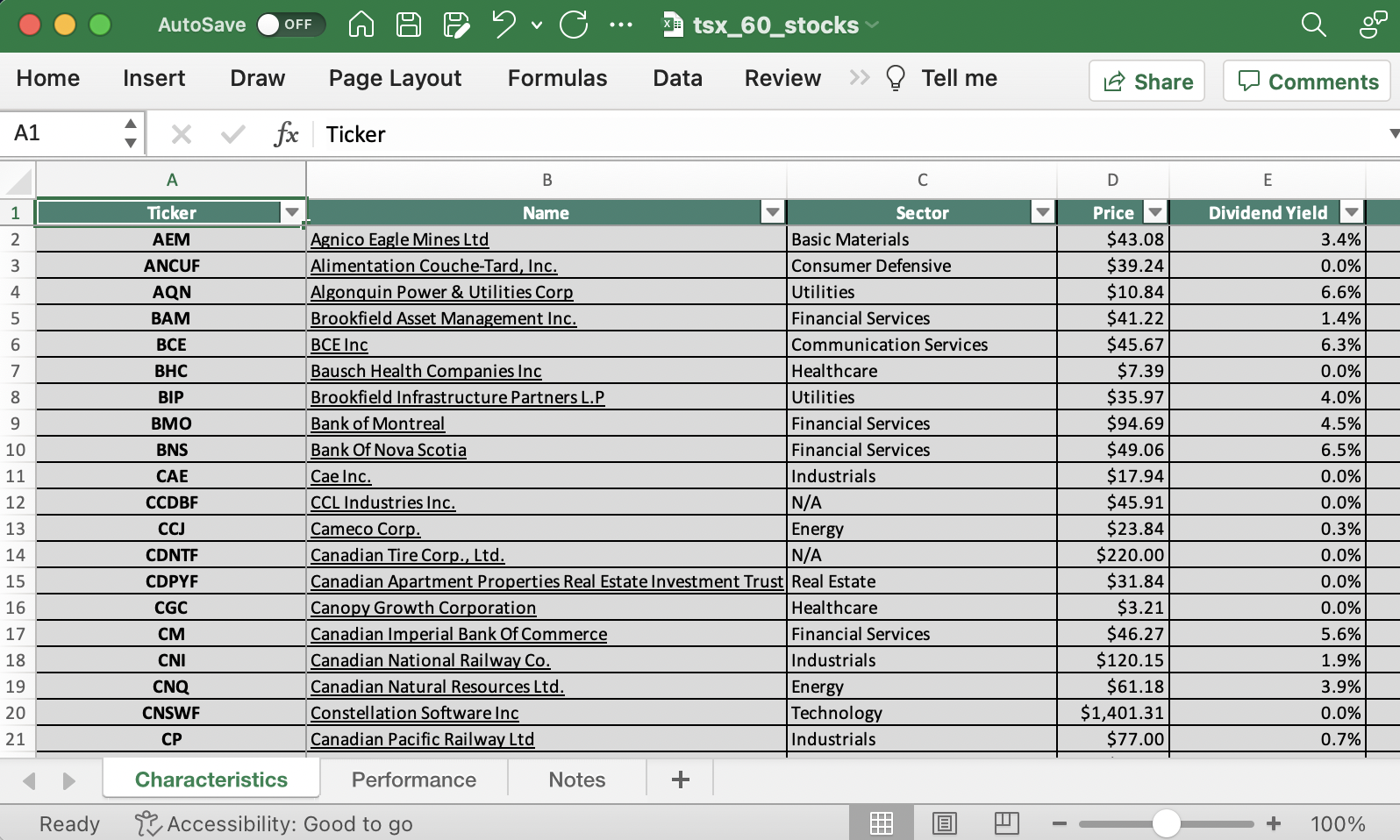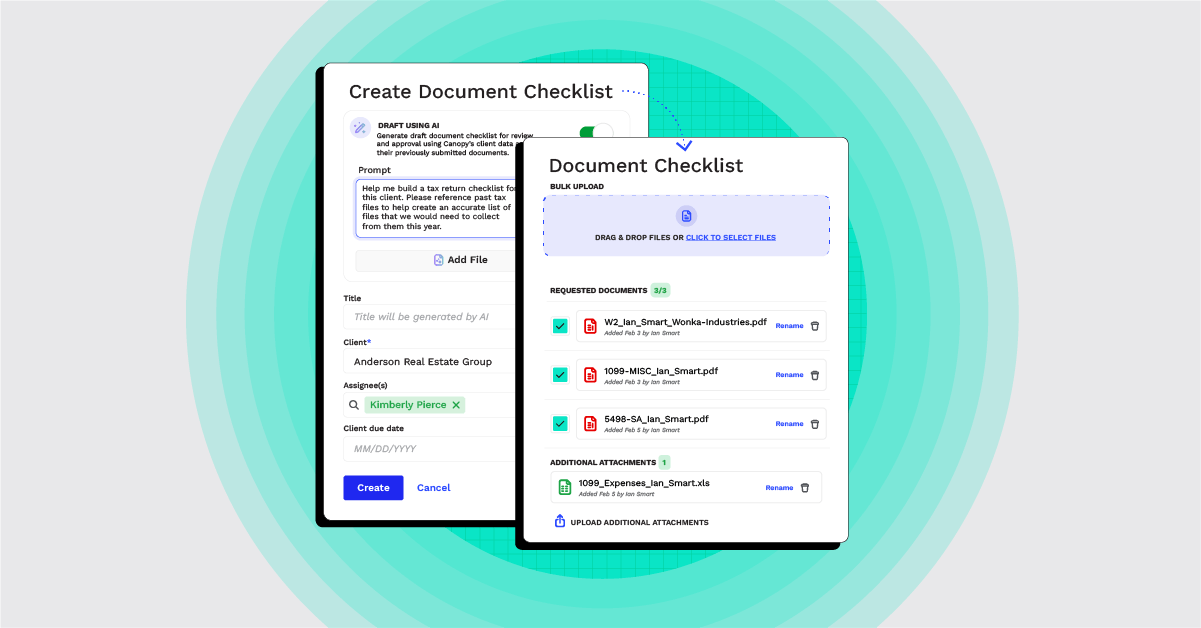While many firms are still debating whether to adopt AI, their clients have already moved past the question of if — and are now asking how fast. So, how will AI affect accounting advisory? It already is.
According to the Thomson Reuters 2025 Generative AI in Professional Services Report (GenAI report), 22% of organizations are already actively using GenAI — nearly doubling from just 12% in 2024. An additional 50% are either planning implementation or seriously considering it.
This creates a game-changing scenario: What happens when your clients know more about AI than your firm does?
The answer is simple. They’ll find someone who does.
Jump to ↓
Clients aren’t waiting for their accounting firms to catch up
Today’s clients are becoming AI-literate at breakneck speed. They’re:
Experimenting with ChatGPT for business planning
Using AI tools for financial analysis
Increasingly sophisticated in understanding what’s possible with artificial intelligence
This knowledge shift is fundamentally changing their expectations of professional services.
The data reveals a telling disconnect. While 57% of corporate clients want their firms to be using GenAI, a staggering 71% of law firm clients and 59% of tax firm clients don’t actually know whether their outside firms are using it. This communication gap represents both a risk and an opportunity.
As Paul Miller, founder and owner at Business By Design, noted on the recent Pulse of the Practice podcast episode, The intersection of wealth management and tax planning, “People don’t care about their tax return. They want to know what’s my end result? That’s really what people want to know. What else can I do?” This sentiment captures the evolution perfectly — clients are moving beyond compliance to seeking strategic value.
As Michael Foguth, president and founder of Foguth Financial, explained this competitive reality, “If you’re not going to be offering that…this person’s going to bring in tax planning. This person doesn’t. Which one do you think the consumer’s going to want to work with?”
The choice becomes obvious when clients can access AI-enhanced advisory services elsewhere. They’re not just seeking someone to process their information — they want partners who leverage technology to deliver insights, planning, and strategic guidance.
The planning evolution: From preparation to advisory
AI is fundamentally reshaping what accounting services look like. The traditional model of tax preparation — taking numbers from one form and putting them on another — is becoming commoditized. The real value lies in tax planning, strategic advisory, and year-round guidance.
The GenAI report reveals this shift in action. Tax research (77%) and tax return preparation (63%) top the list of AI use cases, but tax advisory has risen to become the third most cited use case at 62%.
Top AI use cases in accounting:
Tax research (77%)
Tax return preparation (63%)
Tax advisory (62%)
Foguth agrees, as he emphasized this distinction, saying, “The biggest trend that we see…a majority of this country, all they do is tax preparation… To me in our firm, from day one, it’s tax planning. What you guys are talking about and what you’re doing, you have to be planning that 12 months out of the year.”
This shift from reactive preparation to proactive planning represents the heart of AI’s impact on accounting advisory. When routine tasks are automated, professionals can focus on strategy, relationship building, and complex problem-solving — the work that truly drives client value.
But here’s the critical insight: clients already expect this evolution. They don’t want to hear that you’re “still figuring out AI.” They want to experience its benefits in the services you provide.
Foguth used a compelling analogy. As he explained, “Imagine taking your car in to get an oil change and when you get in there, all four tires are completely bald… But you know, we don’t do tires. So, let’s just bring it down off the lift, change the oil, and tell the client good luck, have a nice day.”
The same principle applies to comprehensive financial services. If you identify tax planning opportunities but don’t address them because “that’s not what we do,” you’re failing your fiduciary responsibility.
The convergence opportunity: When AI meets accounting client relationships
The most successful firms will be those that understand AI’s role in enhancing — not replacing — human relationships. As Foguth observes, “AI is going to be able to significantly improve how we do our job, but it will never replace how we do our job… we are both dealing with humans.”
The key lies in recognizing that AI amplifies human capabilities. It can draft communications, analyze complex scenarios, and identify planning opportunities. But it cannot navigate client emotions, build trust, or provide the nuanced judgment that comes from experience.
This human-AI collaboration opens new possibilities for integrated service delivery. Foguth describes their approach as running “a family office for someone with the client’s best interest…let’s go find a lawyer and let’s start talking about estate planning.” AI makes this comprehensive service model more efficient and accessible.
The GenAI report supports this trend: 95% of professionals believe GenAI will be central to their organization’s workflow within the next five years, with 42% expecting this transformation within the next year. The question isn’t whether this convergence will happen — it’s whether your firm will lead or follow.
The urgency of action: Why waiting isn’t an option for accounting firms
The competitive landscape is shifting rapidly. While only 20% of organizations currently measure ROI of GenAI tools, and many firms lack clear guidance from clients about AI expectations, client demands for AI-enabled services continue growing.
From Foguth’s perspective, there is no time to wait. “If you are not integrating these things into your practice, there’s going to be a point in your career when it’s you versus them, and they are going to be the ones with all of the extra value adds. Who do you think your client’s going to pick?”
The firms that thrive will be those that move beyond asking “Should we use AI?” to “How do we use AI to deliver exceptional client value?” They’ll combine AI efficiency with human insight, offering comprehensive advisory services that address clients’ complete financial picture.
The time for hesitation has passed. Your clients are ready for AI-enhanced services — the question is whether you’ll be ready to deliver them.
Ready to explore how AI can transform your practice? Firms that hesitate risk falling behind. Discover the strategies and tools you need to stay ahead of client expectations. Download our comprehensive guide on AI and tax to learn more about leveraging AI to unlock the full potential of your practice.

























